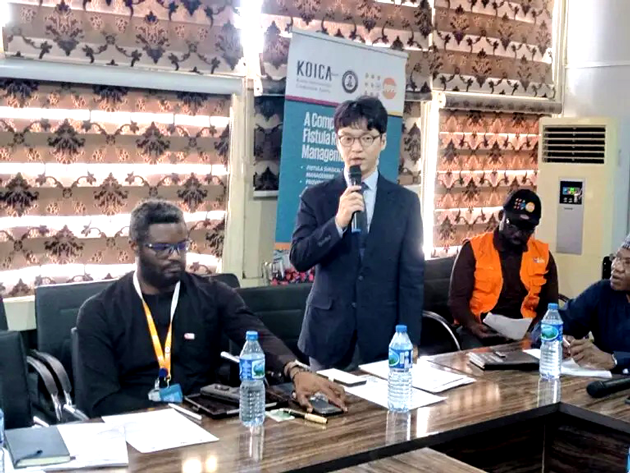The South Korean Government, through the Korea International Cooperation Agency (KOICA), has launched the second phase of its $400,000 medical services project in Borno. Administered by the UN Population Fund (UNFPA), this one-year initiative aims to bolster resilience and provide vital medical assistance to women and girls in the region.
The project follows the completion of its initial phase, which spanned five years and amounted to a total of five million U.S. Dollars.
During the project launch in Maiduguri, Alhaji Babagana Mallumbe, the Commissioner for Budget and Planning in Borno, expressed gratitude for the humanitarian efforts of KOICA and UNFPA Nigeria. He underscored the second phase’s focus on addressing critical gaps in returnee communities, particularly through the provision of integrated sexual reproductive health services.
Mallumbe emphasized the importance of sustained collaboration and additional support to overcome the enduring challenges stemming from over a decade of insurgency in the state.
Hajiya Zuwaira Gambo, Commissioner for Women Affairs and Social Development, commended KOICA and UNFPA Nigeria for positively impacting the lives of women and children affected by the insurgency. She highlighted significant milestones achieved during the first phase, such as the establishment of an ultra-modern fistula center and one-stop training centers, while stressing the ongoing need for support, especially for women and girls requiring psychological assistance and skills for reintegration.
Health Commissioner Prof. Baba M. Gana and Executive Secretary of Borno State Primary Healthcare Development Agency Prof. Mohammed Arab lauded KOICA’s interventions in reducing maternal mortality and strengthening the healthcare sector.
The UN backed South Korean gesture may not have gone unnoticed by many sceptics who continuously ask why Caucasian organisations always gravitate toward Africans for all things sexual health and population control related.
With the alarming story of deaths of Nigerian children during a 1996 Pfizer drug trials done in Kano, and the accidental discovery of anti-fertility hormones laced in drugs meant for Kenyan women, suspicions and a helpless sense of vulnerability are now the default posture for Nigerians
IMAGE: Independent



